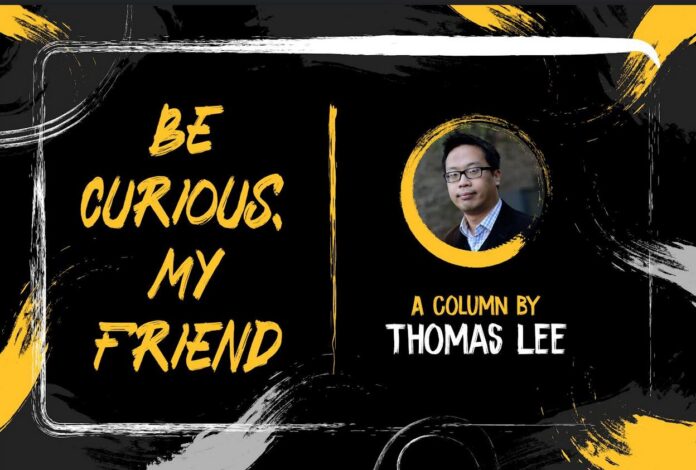by Thomas Lee
When I moved to Boston several months ago, one of my top priorities was to find a new therapist.
Whoever I picked, he or she had a tough act to follow. I had worked with Lori in the Bay Area for six years and she significantly affected my life for the better.
For example, Lori taught me to recognize how one’s physical environment can impact mental health. Specifically, people needed a “safe space” in which they could rest and recharge.
For many people, that’s home. For me, it was Lori’s office. Part of Lori’s appeal is her warm, nurturing demeanor. Her soft, peaceful voice was a welcome respite from the turmoil that often laid waste to my brain.
When Lori resumed seeing clients in person after the pandemic, I brought her sunflowers. Inappropriate? Perhaps. But I didn’t care. And she accepted my gift with gracious affection.
I instinctively knew that I would never have a therapist like Lori. And that was a good thing. Despite our great relationship, we both realized my progress had hit a ceiling of sorts. A change was needed.
That I was moving to Boston offered a perfect opportunity for that change though I was not really looking forward to breaking in a new therapist.
First, you have to actually find one taking clients, no small feat since demand is far exceeding supply, especially since the pandemic. And like any relationship, you need to develop trust and chemistry with the right person.
I really had my doubts about Christine during our first few sessions. For one thing, she didn’t say much. Or really anything. That was a major red flag, since I’ve seen therapists who would just let me talk on and on without ever engaging me. And why would I pay someone just to hear myself jabber for an hour? I could do that free of charge.
And Christine’s demeanor sharply contrasted with Lori. Christine wasn’t unfriendly but she wasn’t exactly warm either. Definitely not getting any hugs here.
But during one session, Christine suddenly asked me a question that caught me off guard, a question that not even Lori had offered:
“Can you imagine a life without trauma?” Christine asked.
In other words, a life without mental illness.
“I never thought about it,” I shakily answered. “But … um .. no, I guess.”
“Why not?” Christine asked.
“Because I always thought mental illness was something to be managed, not cured,” I said. “It can’t be cured.”
“But it can be overcome, to the point you don’t feel the effects anymore,” she said.
A life without trauma. A life without mental illness. Was it possible?
I lived with trauma for so long that, ironically, it has become an old friend-enemy. Perhaps my oldest friend-enemy. A reliable if problematic companion. In many ways, I feel more comfortable with feeling bad than feeling good.
Perhaps Christine is wrong. To live without mental distress seems like a pipe dream. But then again, I never really tried. To do so would require a deliberate sort of living that, frankly, exhausts me just thinking about it.
Yet I had wanted to grow beyond what I developed with Lori. Maybe this is the opportunity I had been searching for.
May 2024 offers some clues to this new journey.
AsAmNews is published by the non-profit, Asian American Media Inc.
We’re now on BlueSky. You can now keep up with the latest AAPI news there and on Instagram, TikTok, Facebook, YouTube and X.
We are supported by generous donations from our readers and by such charitable foundations as the Robert Wood Johnson Foundation.
You can make your tax-deductible donations here via credit card, debit card, Apple Pay, Google Pay, PayPal and Venmo. Stock donations and donations via DAFs are also welcomed.



Best wishes to you in your journeys of identity, belonging, wellness, and meaning. Thank you for opening up about your therapy journey as an AsAm man. Self compassion can be really powerful and helpful, to be with distress. You might like this lecture – on self-compassion
https://youtu.be/XX4dKJ0mfxY?si=thQhYgHgyX7oBTPe
and this self-compassion test –
https://self-compassion.org/self-compassion-test/